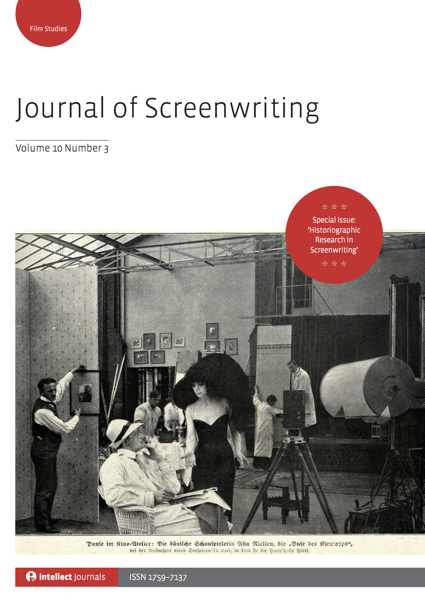Highlighting the articles in the past editions of the Journal of Screenwriting, of which I am the Book Reviews Editor. Hopefully these abstracts will entice you to did a little deeper into the history and future of screenwriting. — Rosanne
Zen and the art of film narrative: towards a transcendental realism in film by Erik Knudsen
Nations and peoples are largely the stories they feed themselves. If they tell themselves stories that are lies, they will suffer the consequences of those lies. If they tell themselves stories that face their own truths, they will free their histories for future flowerings. (Okri 1995: 21) What defines the classic narrative is also at the root of its limitations; an epistemology that ties it to a material and psychological paradigm governed by largely explicable laws of cause and effect. Such notions as character motivation, narrative aims, obstacles, climax and so on have evolved to become as overwhelmingly dominant in cinema as the dogma of reason which subsequently the industrial age solidified. It is from this that the moving-image medium emerged: empirical evidence of motivations, mechanistic notions of causes and effects and scientifically based including the pseudosciences of psychology and sociology that provide justifications for events and actions all serve to reinforce the dominance of the classic narrative’s role in the storytelling of the developed world.In this article, I shall call for a different perspective on cinematic narrative form; not with a view to discussing what film generally is, but to make some general suggestions of what it could be, particularly from the perspective of a film-maker trying to transcend the limitations of the classic narrative. The motive is to try and understand how, in practice, one may evolve narrative forms in such a way as to deal with experiences not sufficiently touched by the classic form, as it is currently generally practised in cinema. I shall, in particular, look at the relationship between emotions and feelings and their relationship to narrative structure and bring into this examination some notions and ideas from Zen Buddhism to re-evaluate that relationship. The issues I hope to raise are about paradigms and I shall therefore deliberately base my discussion on general assertions and eclectic contextualization.
The Journal of Screenwriting is an international double-blind peer-reviewed journal that is published three times a year. The journal highlights current academic and professional thinking about the screenplay and intends to promote, stimulate and bring together current research and contemporary debates around the screenplay whilst encouraging groundbreaking research in an international arena. The journal is discursive, critical, rigorous and engages with issues in a dynamic and developing field, linking academic theory to screenwriting practice.
Get your copy and subscription to the Journal of Screenwriting Today!
* A portion of each sale from Amazon.com directly supports our blogs
** Many of these books may be available from your local library. Check it out!
